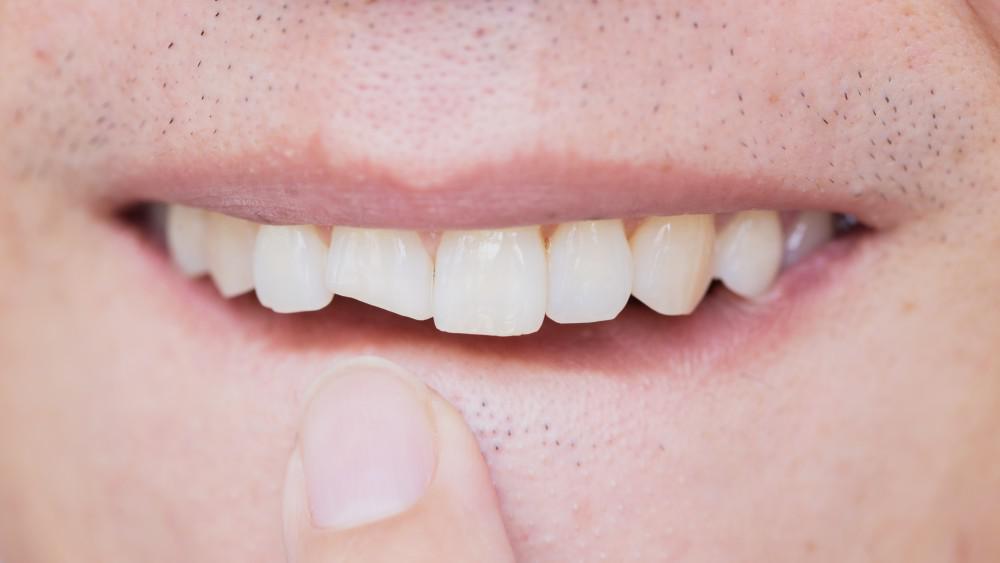
It’s easier to crack a tooth than you might realize. A simple fall or a bite of crunchy food could be all it takes to chip or crack your teeth. So what should you do in response?
Responding to a cracked tooth appropriately may allow you to save that tooth and maximize your chances of a full recovery. By contrast, if you ignore your cracked tooth, it may get worse, resulting in more pain and future complications.
In this article, we’ll explain exactly what to do if you suspect you’ve cracked a tooth.
How Teeth Get Cracked
Teeth can get cracked in a number of ways:
· Hard foods. Tough and crunchy foods can cause a tooth to crack, especially if it has been weakened.
· Grinding and pressure. If you grind your teeth, it shouldn’t surprise you that this additional pressure can result in tooth cracks.
· Direct impact. If you’re involved in a fight or if you fall down, the impact to your face could crack one of your teeth as well.
· Temperature changes. Sometimes, sudden and extreme temperature changes can crack teeth.
· Age. Age can make you more susceptible to cracking teeth. People over age 50 are more likely to experience teeth cracks.
The High-Level View
Now let’s take a look at the high-level view of how you’re going to handle a cracked tooth. Some teeth get cracked without your realization; there isn’t much you can do about this, since some small cracks are legitimately undetectable. If you do notice one of your teeth has cracked, it’s important to take these next steps:
· Recognition and response. Your first responsibility is recognizing how the tooth was cracked, the extent of the crack, and how your mouth feels in turn. The bigger the crack, the more complex the crack, and the more pain you feel, the more severe the circumstances are. In some cases, you’ll need to visit an emergency care provider. In other cases, you can afford to wait a few days.
· Professional assessment. No matter what, you’ll want to visit a professional. Only a dentist or a dental surgeon will be able to properly inspect your tooth for damage and make a reasonable recommendation on what to do next.
· Correction and recovery. At this point, it will be time for correction and recovery. Depending on the extent of the damage, your dentist may recommend taking no action whatsoever. But for bigger cracks and heavily damaged teeth, they’ll likely recommend one of several options for repair or replacement. For example, ClearChoice Dental Implant Center offers dental implants in Arlington TX and 75+ other locations that can give you artificial teeth that look and function just like your real teeth; they’re an ideal solution for anyone with missing teeth or teeth that are cracked beyond repair.
What to Do If You Crack a Tooth
If you do crack a tooth, these are the most important steps to follow:
· Investigate the tooth. Use a mirror to take a look at the tooth and try to feel it with both your tongue and your fingers. Be gentle, especially if you experience any pain. Your goal here is simply to determine the extent of the damage and whether emergency medical attention is necessary.
· Set an appointment (or get emergency care). If you feel significant pain, if the crack is highly visible, if your tooth has suffered heavy damage, or if you notice other complications like bleeding, you should visit an emergency care facility as soon as possible. Otherwise, you may be able to fully recover, even if it takes you a few days to see a professional. Set an appointment as soon as you can.
· Treat pain. While waiting for your appointment, if you’re suffering any pain, you can treat that pain with over-the-counter medications. Just be careful not to overdo it. Some people also find that warm packs or cold packs function well to relieve pain and swelling.
· Avoid eating or drinking. It’s also a good idea to avoid eating or drinking, in general, until you have more information about your cracked tooth. Eating hard foods could make the crack worse, and certain liquids could cause you pain or lead to infection.
· Follow professional advice. Always follow the advice of your dental professionals. Whether you see an emergency care facility or your regular dentist, listen to what they have to say and follow their recommendations.
· Avoid cracking teeth in the future. Take the time to learn from this experience. How did you crack your teeth? Is there any way you could have prevented this?
Cracked teeth can happen to anyone, regardless of how old you are or how well you take care of your teeth. Because of that, you always need to be aware of this potential complication. Addressing your cracked tooth as soon as possible, and with professional help, can maximize your chances of making a full recovery, with no functional loss.
Leave a Reply